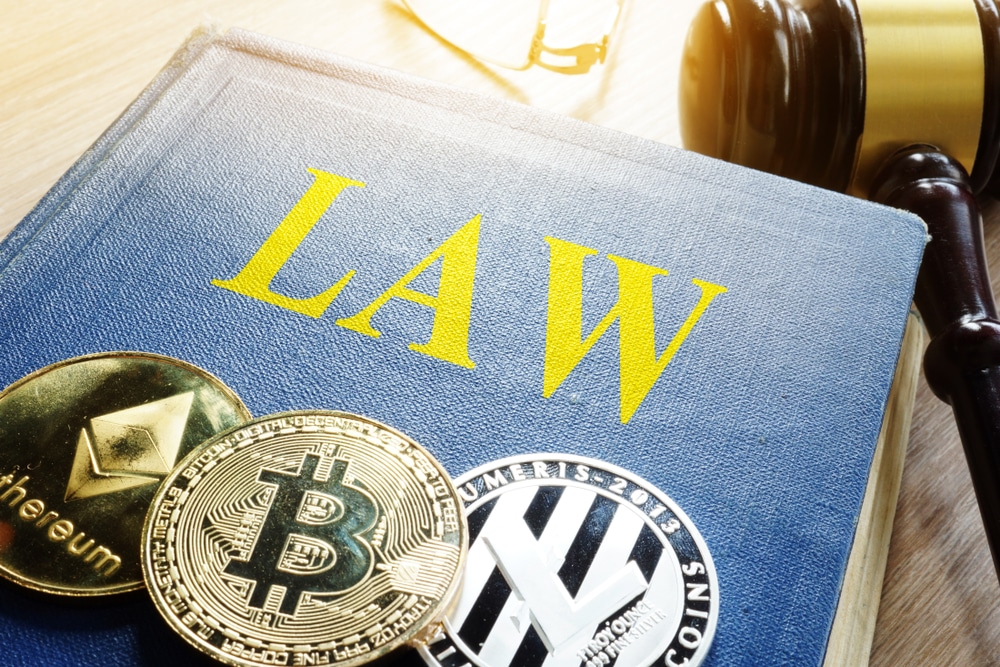
Crypto Lawyer Downplays Impact of SEC Appeal Against Ripple Labs
The Crypto Law executive John Deaton downplayed the impact of the Securities and Exchange Commission (SEC) appealing the Ripple Labs win in the XRP ruling.
Deaton emphasizes that the appeal would not deliver a blow to the ruling by Judge Annalisa Torres that XRP offered for retail does not constitute a security. Instead, the ruling entrenched Torres Doctrine that would last for two years.
SEC’s Appeal Unable to Become Setback to the Ripple’s Courtroom
The crypto lawyer considers the SEC’s appeal incapable of becoming a setback for Ripple’s courtroom victory. He ruled the proximity of the SEC’s appeal to cause a significant impact that would push back Judge Torres ruling. He tweeted that the win has become the anchor crypto project that would leverage to establish legitimacy.
Deaton’s comments support federal district court findings that XRP offered to the public does not become security. She observed that the token powering Ripple’s payment network becomes secure when sold to institutions to generate funds.
Ripple Labs has been embroiled in the legal battle against the Gary Gensler-led SEC since 2o2o. The securities watchdog alleged Ripple raised $1.3 billion by offering unregistered securities. Judge Torres delivered a split victory, with only wholesale offerings qualifying for the security label.
The ruling attracted criticism from SEC chair Gensler. He termed the court findings as disappointing. He admitted that the ruling triggers far-reaching implications for other crypto projects whose native tokens face regulatory heat. In particular, the filings by SEC on Friday, July 21, informed the court handling Terraform Labs that it would appeal the Ripple case.
Time Taken to Reverse Torres Ruling Would Erode Impact from SEC’s Appeal
Deaton considers it would take substantial time for the appellate court to rule in the SEC’s favor. In particular, he approximates the 2nd Circuit court to take two years to reach a decision. Deaton indicates that Torres’ Decision would be the law during this period.
Torres observed that programmatic XRP sales to public buyers barely satisfied the Howey Test. It constitutes the methodology deployed to ascertain whether the investment contract exists during the asset sale. Judge Torres ruled out the existence of reasonable expectation to reap earnings from leveraging the entrepreneurial and managerial efforts of other parties.
Judge Torres observed that the public buyers of XRP were unaware they bought the tokens from Ripple Labs. The judge found the transactions relied upon a programmatic sales structure, thus preventing the buyers from anticipating profit linked to Ripple’s efforts.
Judge Torress explained that whereas the programmatic buyers acquired the XRP tokens anticipating profit, such expectations were not derived from the Ripple Labs’ efforts. As such, none of the individuals who participated in the programmatic sales bought the XRP from Ripple.
Deaton opines that even if SEC successfully challenges the Howey Test as applied by Torress, the ruling would remain the same when other factors are examined. Considering investment money and proof of common enterprise would translate to the same finding. It would only yield a greater challenge for the Gensler-led SEC. He added that it would become challenging for SEC to demonstrate that a common enterprise existed, unlike anticipating profit from the effort of others as required in the Howey Test.
Judge Torres Ruling Considered to Deliver Unequivocal Win to Crypto Industry
Deaton’s observation echoes Ripple Labs chief executive Brad Garlinhouse who termed the Torres ruling as delivering an unequivocal win transcending the US crypto industry.
SEC formulated the mess when claiming to be the cop policing the crypto bead. Garlinghouse decried that the SEC proclaimed its policing responsibilities despite lacking legal jurisdiction. The executive indicated that legislation rather than regulation by enforcement could deliver the clear rules needed to protect crypto retail.
Ripple Labs chief legal executive Stuart Alderoty indicated that securities agencies should only exercise authority to the extent of the jurisdiction granted. The absence of a security label extinguished the SEC’s role in crypto retail. He added that the pretense of having the jurisdiction amounts to a political power play. He termed the pretense as lacking beneficiaries to hurt all parties instead.




